The China-Belarus Symposium on Intelligent Image Computing and Precision Medicine Hosted by Zhejiang International Science and Technology Cooperation Base of Remote Sensing Image Processing and Application was held in our university. Ye Shiping, our Vice President and Director of Zhejiang International Science and Technology Cooperation Base of Remote Sensing Image Processing and Application, delivered a speech and attended the Symposium.
The scholars from Belarus, including Prof. Sergey Ablameyko, Fellow of the European Academy of Sciences, Member of the National Academy of Sciences of Belarus, and Member of the Academy of Engineering of Belarus, Corresponding Member Alexander Tuzikov, Director of the Division of Mathematical Control Research of the Joint Research Institute on Information Issues of the National Academy of Sciences of Belarus, Prof. Alexander Nedzvedz from the Belarusian State University, Prof. Vladimir Golovko, Dean of the Department of Information on Intelligent Technologies and Director of the Laboratory of Intelligent Neural Network of the Brest State Technical University of Belarus, and Prof. Rykhard Bohush, Dean of the Department of Computer System and Network of the Polotsk State University of Belarus, attended the Symposium and delivered keynote speeches respectively.
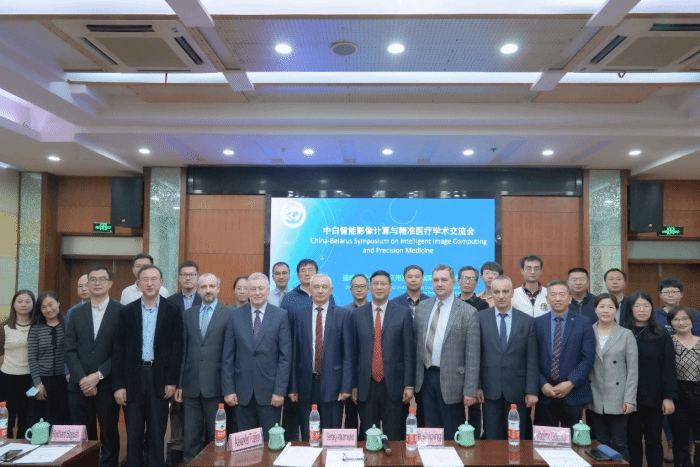
In his speech, Ye Shiping reviewed the cooperation with Academician Sergey's team since 2016. Both parties have focused on the research about the intelligent processing for shadow, the intelligent recognition for objects, and classification and extraction of remote sensing images, intelligent recognition of people and objects in monitoring images, intelligent prediction of multi-person behaviors, three-dimensional reconstruction of tissues and organs in medical images, intelligent identification of lesions and auxiliary diagnosis and treatment, and made fruitful scientific research achievements. He pointed out, the rapid development of artificial intelligence, big data, cloud computing, Internet of Things and other kinds of new computer technology promoted the application of intelligent computing in various types of image processing, and the application of intelligent computing in medicine could advance the development of precision therapy, a hot research focus on a promising prospect of application. And he hoped that both parties would further deepen the research in the original fields and expand the research in new fields on the original basis to help promote the 315 Science and Technology Innovation System of Zhejiang Province and the life and health of human beings.
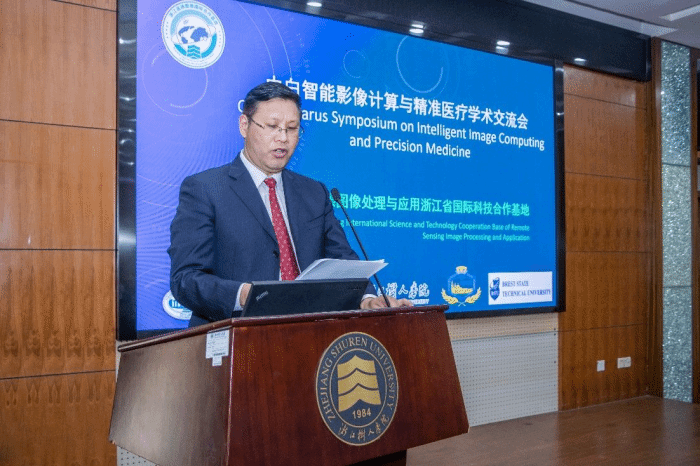
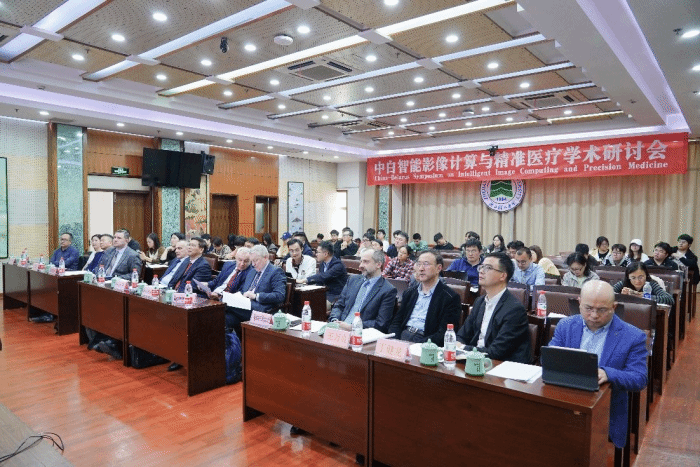
Academician Sergey Ablameyko, Academician Alexander Tuzikov, Prof. Vladimir Golovko, Prof. Alexander Nedzvedz, Dr. Rykhard Bohush, Prof. Chen Chaoxiang, Associate Professor Bai Zhiccan, Dr. Yang Keda, Dr. Sun Yuliang and Dr. Liu Zhengtao presented their researches respectively on the feature extraction of spectrum in color images of intelligent computation, the face feature recognition and reconstruction, the unsupervised learning methods of deep learning in image processing, the individual re-recognition of convolutional neural network in video surveillance system, and the depth learning on solving biomedical problems, the deep learning in the three-dimensional reconstruction of lung tumor cells and peripheral blood tubes in CT images, and the early discovery of small molecule drugs assisted by artificial intelligence. At the meeting, the Chinese and Belarusian scholars exchanged opinions and discussed in depth.
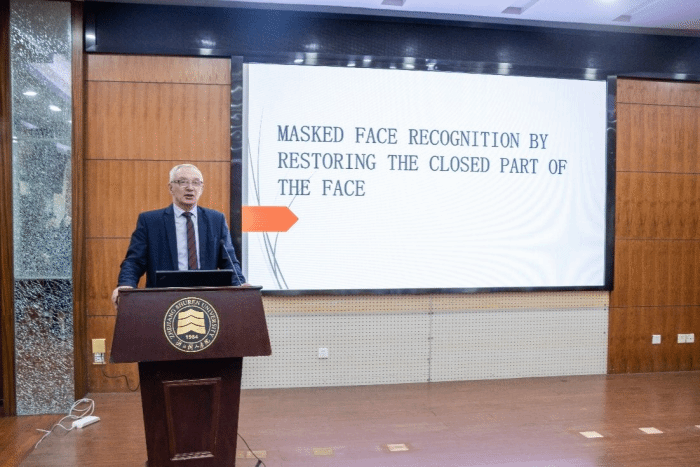
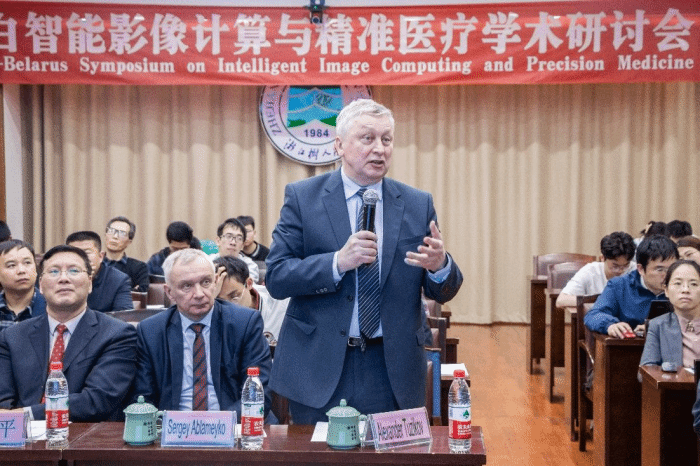
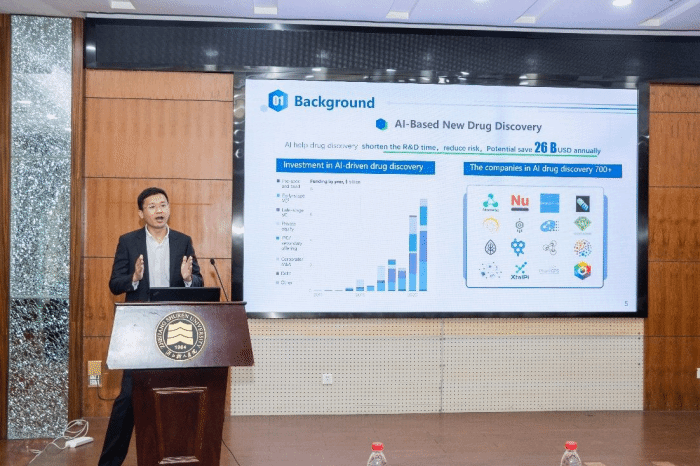

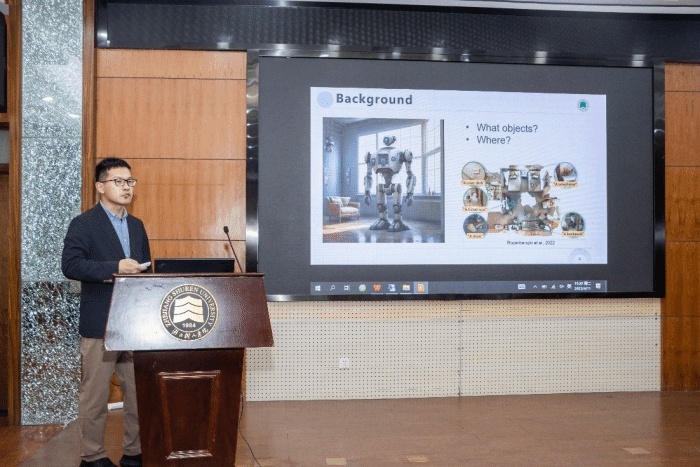
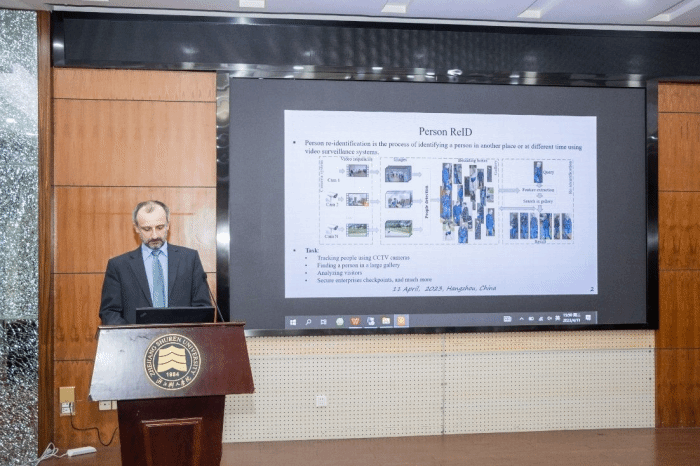
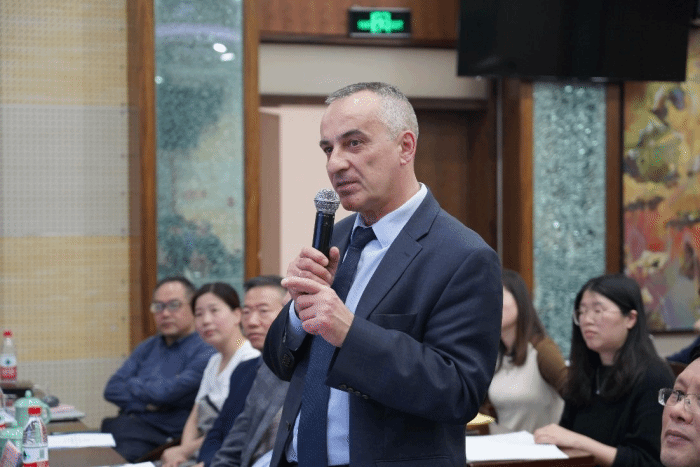
Academician Sergey Ablameyko made a summary of the symposium. He spoke highly of this academic exchange activity organized by the International Cooperation Base of Remote Sensing, and said that it was lucky to see more young scholars doing extensive and in-depth researches on the theme of "Intelligent Image Computing and Precision Medicine". Many theories and applications were innovated, which would be beneficial to the attendees to master the research frontier, exchange research results and expand research thinking. Most of the 10 academic reports are the results of scientific research cooperation between both parties. He also hoped that both Chinese and Belarusian scholars could expand and deepen their cooperation subsequently, and welcomed all attendees to gather in Minsk in the near future.






